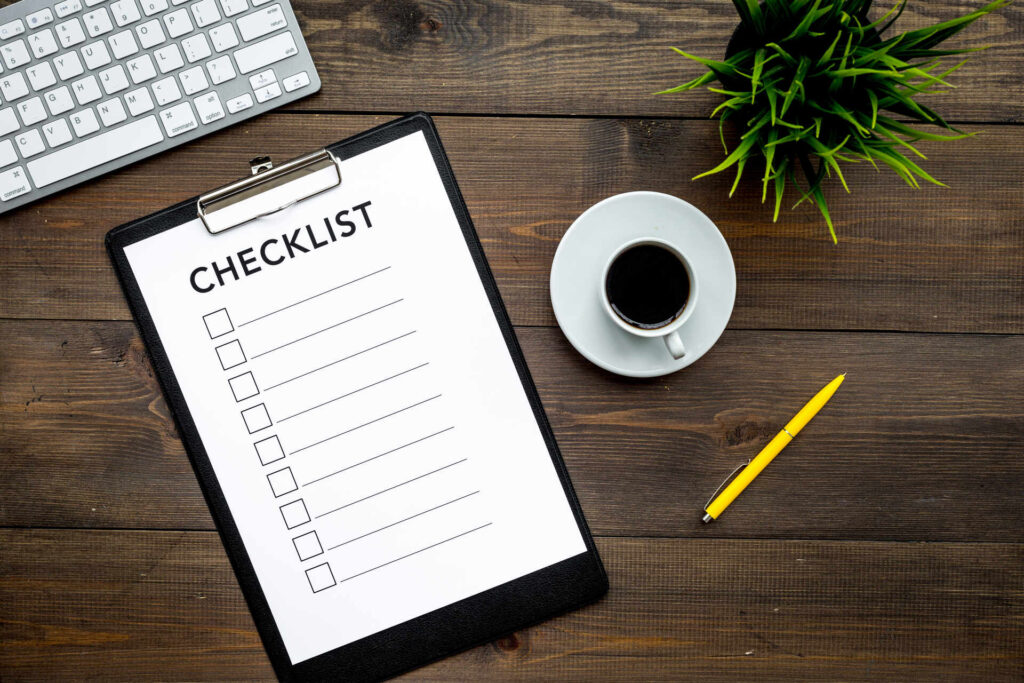Moving to a new state marks the beginning of an adventure and can be quite exhilarating. However, there are a couple of challenges that will make your head spin. Every relocation demands plenty of scheduling and preparation, and you have probably asked yourself the question – what to do before moving to another state? You have come to the right place because we’re here to offer some helpful tips.
Finding a Job or Relocating With Your Current Company
Among the most common reasons to move cross-country is an excellent job opportunity. Maybe you’ve been promoted to a better position. Your employer might pay some parts of relocation costs and even help you find an apartment. However, if you don’t have a job, you should explore the job market before you move. You’ll also have to deal with all expenses and research the city on your own.

Create a Moving to a New State Checklist
Securing a job is very important, but a moving-to-a-new-state checklist should also be your top priority. Avoid last-minute moving and keep everything under control by creating the ultimate checklist for moving to another state. Whether you are hiring professional moving services or are planning on doing the whole thing by yourself, writing such a list will save you a lot of time and energy.

Create an Inventory List and Declutter Your Home
It would be good to make an inventory list of your household items and decide what you will move. Remember that the cost of relocation services is based on the size of your relocation. This could be an excellent opportunity to declutter your home and donate unwanted items. You can also do some research on how to have a successful garage sale and earn additional money to cover your relocation expenses.

How Much Money Should You Save to Move to a Different State?
Among the most important things to consider when relocating long-distance is the budget for moving and living expenses. Besides the insurance, rent deposit, utilities, and other moving-related costs, your final budget is determined by whether you are using extra services like packing, a storage unit, and auto transport. You’ll need to save enough money that will cover at least three months of living expenses. If you are moving out for the first time, you can use an online budget calculator to manage your finances.
Bear in mind that the time of year you pick to move will impact your budget. Typically the business relocation season is in the summer, so it will be a bit more expensive than relocating in winter.
How to Cut Some Expenses When Moving: Here’s Our List
The cost of interstate moving can be overwhelming, and you’re surely going to search for different options on how best to cut some expenses. Apart from organizing a garage sale, there are a couple of additional options you should consider:
- Decide to move during winter when moving-related expenses are cheaper
- Organize your stuff and decide what you will keep, discard or donate
- Cancel cable and Netflix subscriptions a couple of months before the move
- If possible, rent a room in your current apartment using Airbnb or similar service
- Minimize your day-to-day spending to only the things you need

Moving From One State to Another Calls for Reputable Movers
You’re going to have a less stressful relocation if you choose to hire a reliable company to help you move safely. The best and cheapest way to move out of state is to search for companies that conduct long interstate moves. These companies have a broader reach than local ones that usually don’t even have enough capacity for a cross-country relocation. When searching for reliable movers, you should pay attention to customers’ reviews and look for the USDoT number. To avoid unpleasant surprises on a relocation day, be sure to check which items movers won’t move.
Give Your Movers Several Contacts
Remember to leave several back-up contacts when scheduling your move with a chosen company. You may forget to charge your phone or leave it on silent. Provide multiple phone numbers so that your movers can reach you on the relocation day.

Get to Know the Tax Regulations When Moving From One State to Another
Only a couple of states don’t have an income tax, but if you are relocating from and to a state with an income tax, residency is crucial. Every state has separate rules for determining residency for this purpose, so be sure to know both states’ tax laws. Check the video below and see what the friendliest tax states are.
Keep Important Documents and Valuable Items Close
Believe it or not, personal documents are among the most commonly forgotten things to pack when relocating. As a part of your relocation day preparation, make sure you purchase a binder or a box where you’ll place all important documents from your home and keep it with you during transportation. The same goes for items that are valuable to you. Surely, you don’t want to pack a personal heirloom together with replaceable items like dishware. Besides, relocation companies are usually not allowed to transport documents and valuables, so be sure to place them in a separate box that you’ll be carrying yourself.

Update Your Address and Other Necessary Paperwork
Among the most important tasks you have when moving to a new state is to update your physical address and other personal information. This step is crucial in order to receive your recurring bills, bank account updates, and other important mail. On top of that, it wouldn’t be bad to do this a few weeks in advance to make sure your most recent mail arrives safely at your changed address.
Update All Your Subscriptions
Be sure to update your magazines and newspaper subscription with a changed address. The same goes for meal subscription boxes or anything else you are subscribed to.
Moving From One State to Another Requires Utility Transfers
You should call your utility companies before the relocation and let them know you will move soon. Those utilities include gas, water, electricity, security system, and the internet. You don’t want to be without hot water and electricity after a long relocation day. Therefore, as soon as you update your address, you should schedule the transfer or installation of your utilities.
Interstate Relocation Requires Purchasing a Pet License
If you are relocating with your beloved furry friends, you should be very careful about the required documentation. The laws may differ depending on the destination, but you will likely be required to register your pet within one month of relocation. The sole purpose is to ensure your beloved friend gets necessary vaccinations for public safety reasons.
Register Your Car and Transfer the Driver’s License
After relocation, you are required to register your vehicle. Unfortunately, you cannot do this online. Before you head down to the DMV office, we advise you to contact them and ask for the needed registration paperwork. Registering your vehicle should be on top of your post-move list because different states have different deadlines. Pretty much the same goes for your driver’s license. Again, laws differ, so be sure to check your state’s requirements for transferring the driver’s license.
Remember to Get Insurance When Moving to a New State
Once your belongings are loaded into the truck, they are at the risk of theft and damage. That is why you should obtain insurance that will cover the expenses of damaged or lost items. If you decide to relocate with a company, they will provide you with a number of insurance options.

Research Your Neighborhood in Advance
An inevitable part of moving essentials is the research of the neighborhood you’re going to live in. If you are moving from a small town to a big city, consider making a short trip. Bring a city guide and maps or search for some brochures at the local tourist center. Be on the lookout for some cool spots and low-key places and meet your soon-to-be neighborhood. If you don’t have time for such a trip, you can use Google Street View and take a virtual walk around the area.
Look for a Place to Live
Unless your interstate move is a part of a corporate transfer, you are on your own regarding the apartment hunt. If you plan to purchase a home and don’t know the area, you should rent an apartment for the first couple of months. When you meet the city and check out which neighborhood suits your needs and preferences, you will be ready to buy a home.
Search for a Good School
If you are relocating with children, your top priority will be to find the best school. You should make a short list of possible schools you think are suitable regarding school hours, curriculum activities, teaching methods, safety, extra programs, etc. You can also get to know specific people who can recommend good schools in the area. When you complete the moving out for the first time list, you should schedule a personal tour and visit those schools, preferably with your children.
Find a Family Physician
Finding a physician for you and your family members will be time-consuming, but this step is incredibly important. Firstly, you should make a list of different types of doctors you are going to need. You should then consider the location of your doctor’s office and see if it’s either close to your home or if the commute is fine. And the last thing to do is consider your personal preferences and choose a doctor you and your family are comfortable with. You can ask your current primary care doctor for advice during this step. It is highly likely that they already know a specialist in your future neighborhood and can recommend one.
Research the Safety of Your Neighborhood
We all want to live in a safe environment, but sometimes we can’t be sure whether we’re relocating into one. The good news is that all the technological advancements made it easier to share data from police records. Today, criminal activity can be easily checked. There are plenty of websites that have gathered the necessary information to do free research on the safety of a particular neighborhood. Spot Crime is a good website for that. It uses local news, user reports, and police data. Just type in your soon-to-be neighborhood, and you’ll see a map that shows you different types of offenses and where they have occurred. Use this or a similar platform to find a safe area to settle.

Introduce Yourself to Neighbors and Make Friends
The last entry on our to-do list but no less important – build social connections in the area you are soon going to live in. When you do a cross-country relocation, you’ll move far away from your friends and family. Losing such support can take an enormous toll on a person and cause depression after moving. You can beat this feeling by making friends:
- The best thing you can do is meet new neighbors and introduce yourself when you see them walking down the street
- Use social media to meet a person and get the real-live connection
- Go out to a concert and find a group of people who enjoy the band as much as you do

That’s a Wrap on Moving to a New State
We hope we helped you with our relocation day tips on what to do when moving to a new state. Relocation requires a lot of planning and physical tasks, which can cause more than one headache. But the good news is that, with some thinking in advance and a little research on stress-free moving, you can do yourself a gigantic favor and make your move as effortless as possible.










